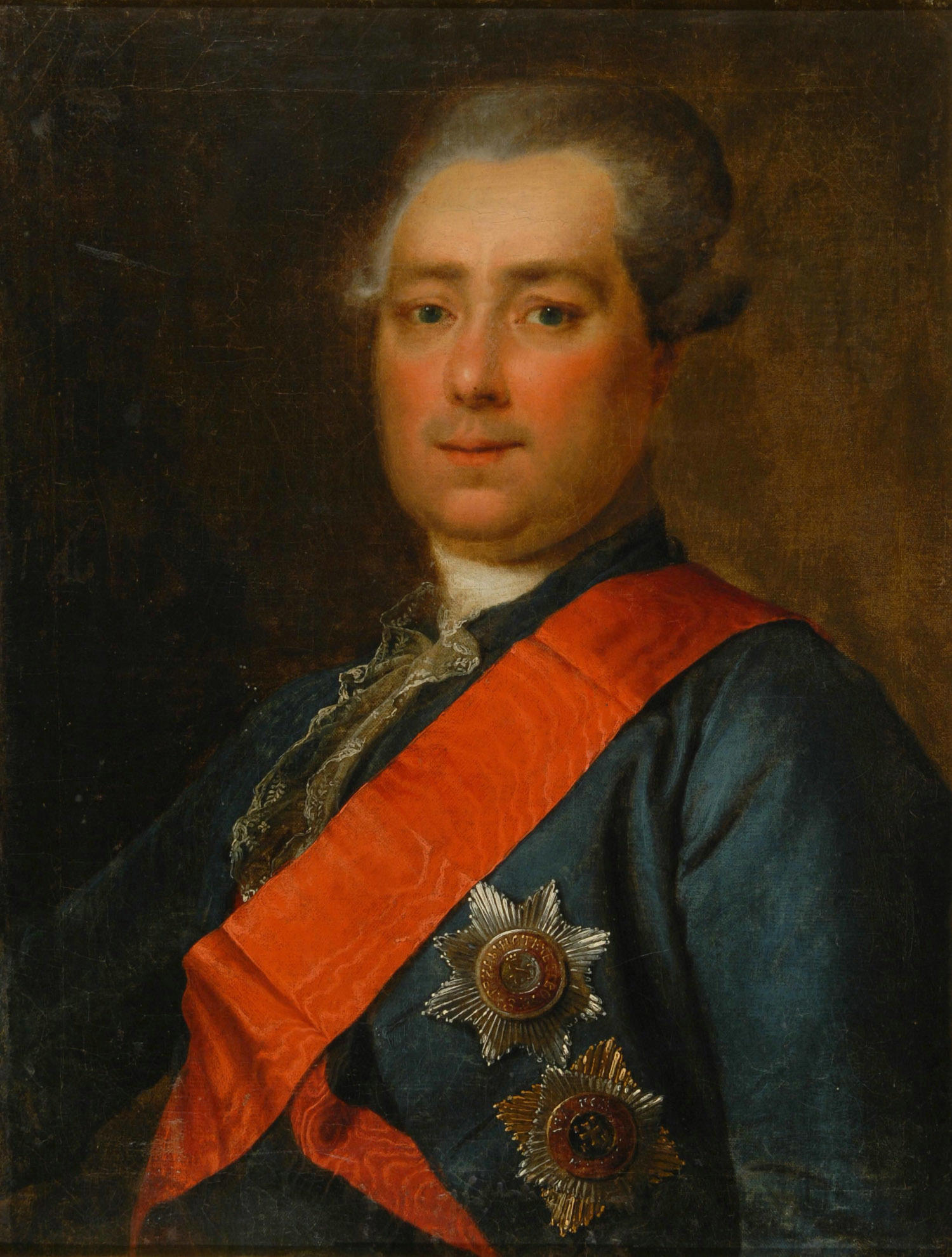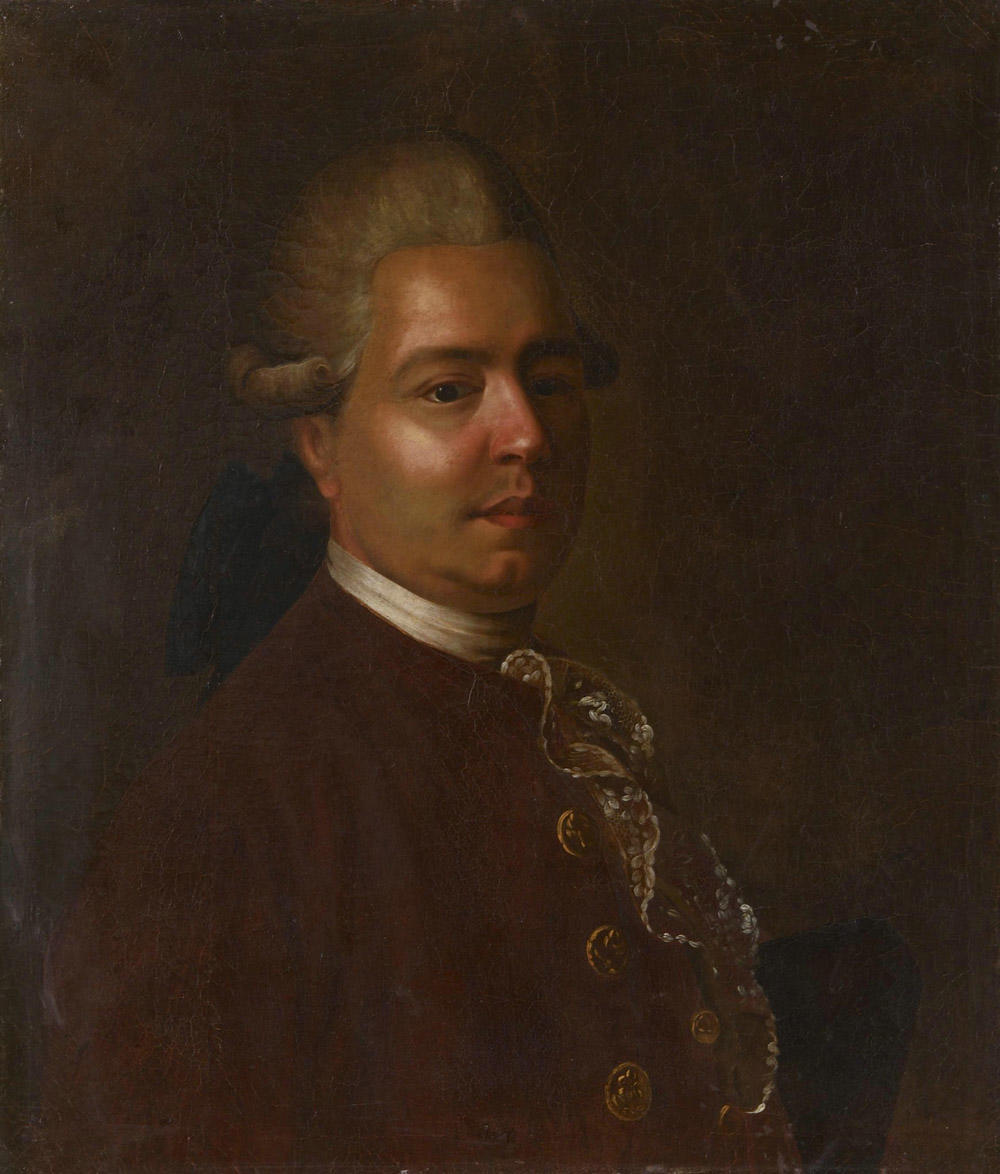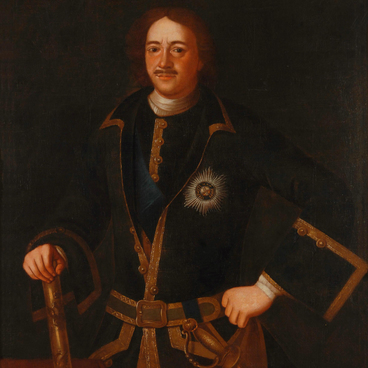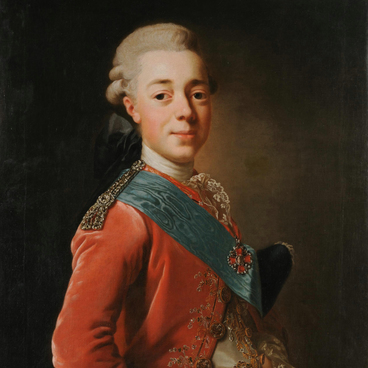The portrait depicts Alexandre Vorontsov, a diplomat, the first Minister of Foreign Affairs of the Russian Empire, and the eldest son of the first governor of the Vladimir Region, Roman Vorontsov. When Alexander’s mother died of typhus, he was the only one of the five children who continued to live in the house - the widowed Vorontsov entrusted his other children to the care of his closest relatives. Alexandre received a traditional home education, and at the insistence of his uncle, Chancellor Mikhail Illarionovich, later went on an unaccompanied journey through Europe. After travelling in France, Germany, Spain and Italy, the young count entered the Reiter school at Schweu-Leager, where he studied together with the children of the French aristocracy.
Studies in France influenced Vorontsov’s interests in literature and art. He was the first to translate a number of Voltaire’s works into Russian, which were published in Russia in 1756. The Count greatly admired the famous writer and was even able to meet him several times in Mannheim and Geneva.
Alexandre Vorontsov devoted his entire life to diplomatic service. He was a chargé d’affaires with the Viennese court and was appointed, in 1762, Minister Plenipotentiary to England. Vorontsov enjoyed success with the Russian court as well: Peter III was well disposed towards the beloved brother of Elizaveta who was his favourite. The contemporaries believed that it was with her help that Vorontsov became an actual chamberlain.
Catherine II later transferred the Count as the Minister Plenipotentiary to the Netherlands, and appointed him, in 1773, director of the Commercial Collegium, which Vorontsov headed for 20 years. When he handed in his resignation, the Empress wrote: ‘I have always known, and now I know by heart that his talents are not for my service and he is not my servant. We will be divorced and untied forever…’
When Paul I came to power, he asked Vorontsov to return to the service, but the Count refused. He was at the time improving his favorite estate Andreyevskoe, which held a variety of works of art, the Count had collected throughout his life. However, Alexandre Vorontsov’s career eventually came to an end only during the reign of Alexander I, who appointed him the State Chancellor and the first Minister for Foreign Affairs of Russia in 1802. Vorontsov was instrumental in bringing about important changes in the political policy of the country; he championed alliances with England and Austria, and advocated for a break with Napoleon.
Alexandre Vorontsov died in his estate and was buried there, in the house church of St. Andrew the First-Called.
Studies in France influenced Vorontsov’s interests in literature and art. He was the first to translate a number of Voltaire’s works into Russian, which were published in Russia in 1756. The Count greatly admired the famous writer and was even able to meet him several times in Mannheim and Geneva.
Alexandre Vorontsov devoted his entire life to diplomatic service. He was a chargé d’affaires with the Viennese court and was appointed, in 1762, Minister Plenipotentiary to England. Vorontsov enjoyed success with the Russian court as well: Peter III was well disposed towards the beloved brother of Elizaveta who was his favourite. The contemporaries believed that it was with her help that Vorontsov became an actual chamberlain.
Catherine II later transferred the Count as the Minister Plenipotentiary to the Netherlands, and appointed him, in 1773, director of the Commercial Collegium, which Vorontsov headed for 20 years. When he handed in his resignation, the Empress wrote: ‘I have always known, and now I know by heart that his talents are not for my service and he is not my servant. We will be divorced and untied forever…’
When Paul I came to power, he asked Vorontsov to return to the service, but the Count refused. He was at the time improving his favorite estate Andreyevskoe, which held a variety of works of art, the Count had collected throughout his life. However, Alexandre Vorontsov’s career eventually came to an end only during the reign of Alexander I, who appointed him the State Chancellor and the first Minister for Foreign Affairs of Russia in 1802. Vorontsov was instrumental in bringing about important changes in the political policy of the country; he championed alliances with England and Austria, and advocated for a break with Napoleon.
Alexandre Vorontsov died in his estate and was buried there, in the house church of St. Andrew the First-Called.





